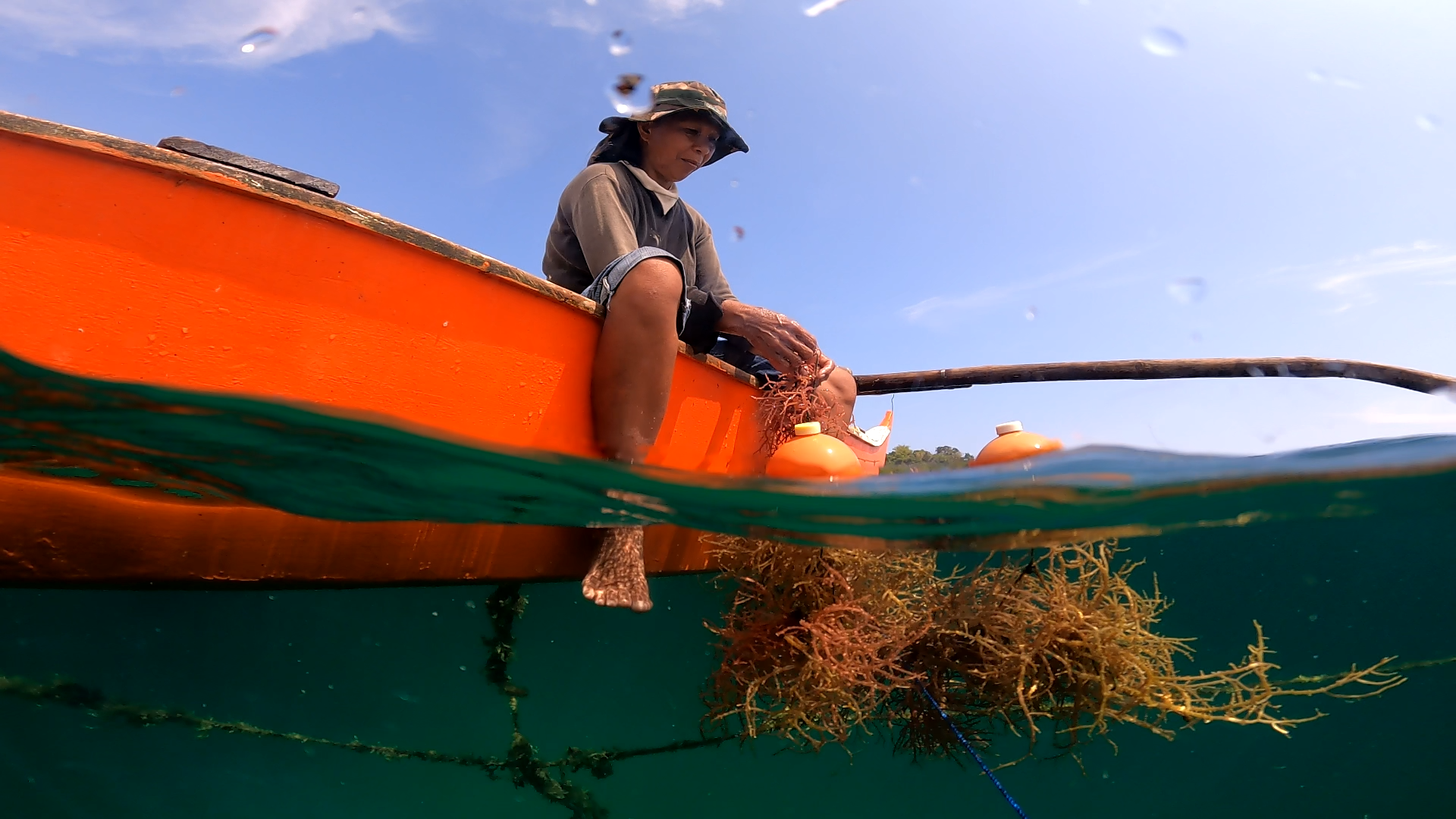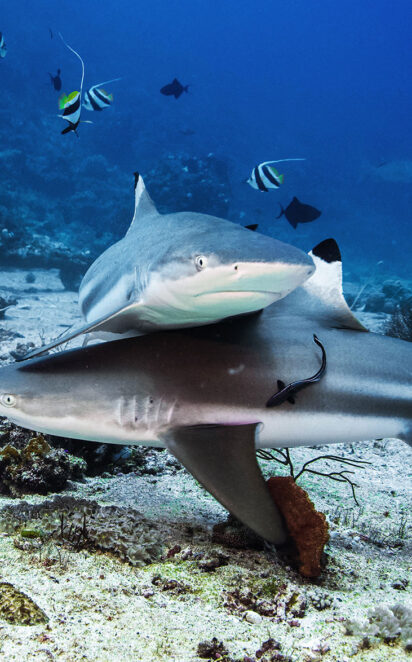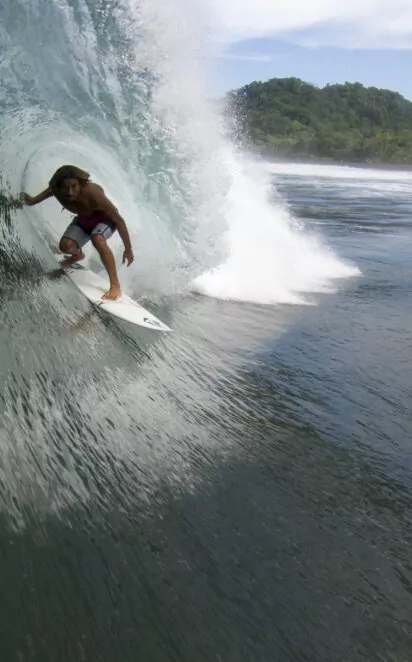Regenerative seaweed farming linked to improved Marine Protected Areas
Project Lead: Coast 4C Limited
Supporting Partners: Oceanfarmr, Arribada
Financial Support: The UK’s Blue Planet Fund
Location: The Philippines
Project Timeline/Status: Ongoing (2024-2026)
Project Summary
Coast 4C Limited is accelerating regenerative seaweed farming as a tool to enhance the resilience of climate vulnerable coastal communities in and around marine protected areas (MPAs). Beginning in eight MPAs where Coast 4C is already operating, seaweed farmers, 80% of whom are women, will receive high quality equipment and seedlings along with improved on-farm technologies and management support to develop and expand sustainable seaweed farms. Farmers will also participate in the co-management of these MPAs, including the establishment and monitoring of no take replenishment and sustainable use zones. Coast 4C and their partners will then monitor and evaluate the performance of these farms and the ecosystem services they provide to inform the development of new financial products such as farm finance and crop insurance.
Seaweed farmers in the Philippines are some of the most exposed and climate-vulnerable communities in the world. A highly fragmented value chain and lack of investment in production means that seaweed farming methods have remained largely unchanged for over six decades. By working with farmers to improve the quality and quantity of seaweed farming yields, and linking this directly to improved marine resource management, the project aims to support the development of sustainable livelihoods and the implementation of the Philippines MPA network.
Challenge
Seaweed farming in small-scale fishing communities faces numerous risks beyond climate change, including limited access to quality seedlings, theft of seaweed and farming equipment, and harmful fishing practices. In the absence of risk management services, unsustainable practices prevail. Seaweed farming methods and approaches that are more resilient to climate change are generally out of reach for small-holder farmers due to a lack of access to affordable finance.
Solution
Coast 4C will deliver farm input packages to 300 farmers that increase resilience by reducing pest and disease mortality and improving quality. These packages comprise high-quality seedlings from Coast 4C expanding network of 18 nurseries, along with training and materials for climate-resilient farming practices. Delivery is facilitated through self-help community banks using the Village Savings and Loan Association model, fostering social capital and financial literacy. This work is integrated into iMPA management plans to ensure that regenerative seaweed farming contributes to positive biodiversity outcomes.
Scaling and Next Steps
The project’s outcomes will establish a compelling case for private sector and institutional investors to scale the approach initially in the Philippines, then across Southeast Asia. Additionally, it will assess the ecosystem services produced by integrating regenerative seaweed farming with MPAs, exploring opportunities to quantify biodiversity or nutrient credits. It may also offer replication potential in other aquaculture and fisheries sectors, notably integrating best practices into MPAs.
Small-holder fishing communities are on the front line of climate change, biodiversity loss and pollution. We are delighted to be working with ORRAA to start scaling up regenerative seaweed farming, empowering these communities both to be part of the solution and to benefit from that solution.” – Nicholas Hill, Co-founder & CEO, Coast 4C.




